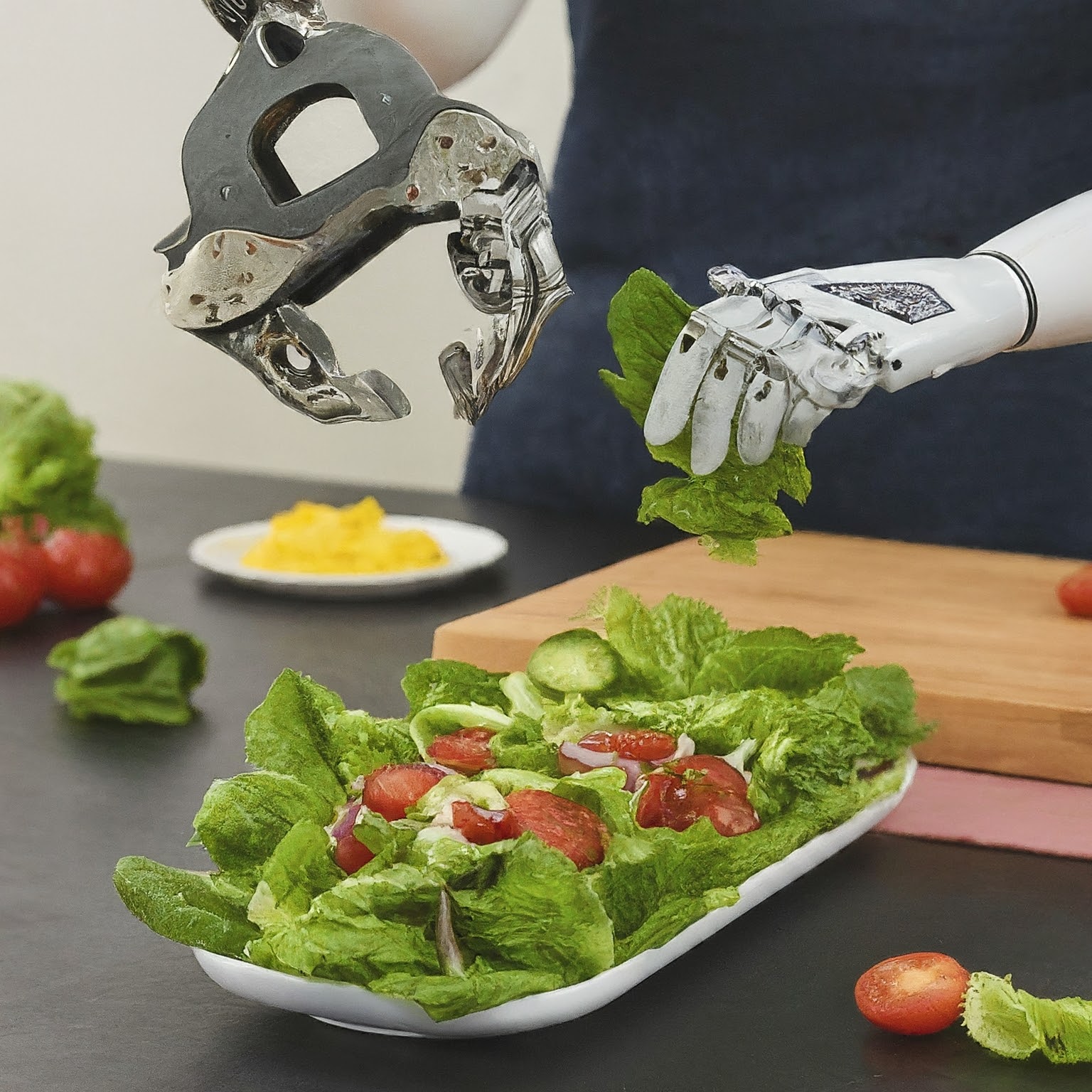
From farm to fork, artificial intelligence (AI) is shaking things up in the food industry. This powerful technology is not just about flying robot chefs (although that might be cool!), it’s about using data and machine learning to improve efficiency, safety, and even personalize our food experiences.
Let’s dive into some of the exciting ways AI is making waves in the food industry:
Smarter Farms:

AI is helping farmers optimize crop yields and resource use. Imagine tractors that can identify and target weeds with pinpoint accuracy, or drones that monitor crops for disease outbreaks. By analyzing data on weather patterns, soil conditions, and historical yields, AI can suggest the best planting times, fertilizer applications, and irrigation strategies. This not only boosts harvests but also conserves precious water and reduces reliance on pesticides.
Eagle-eyed Quality Control:

Say goodbye to missed imperfections on a conveyor belt. AI-powered vision systems can inspect food items at lightning speed, detecting foreign objects, blemishes, or signs of spoilage. This not only improves food safety but also reduces waste by catching problems early on in the processing line.
Predictive Power:
Ever wondered how supermarkets know exactly how much milk to stock? AI helps with that too! By analyzing sales data, weather patterns, and even social media trends, AI can predict consumer demand for specific products. This allows restaurants and grocery stores to optimize their inventory, reducing spoilage and ensuring customers find what they need.
Personalized Plates:
We all have different dietary needs and preferences. AI can analyze our shopping habits, health data (with permission, of course!), and even social media posts to recommend recipes and meal plans tailored to our unique needs. Imagine a grocery app that suggests healthy substitutes based on your allergies or a restaurant that recommends dishes based on your past orders.
Robots on the Rise:

While robot chefs might still be in the future, AI-powered robotics are already making a mark in food processing and packaging. Robots can handle repetitive tasks like picking and placing items, freeing up human workers for more complex jobs. This improves efficiency and reduces the risk of injuries in food processing plants.
AI Chefs? Not Quite, But Getting There!
AI is already being used to create new flavor combinations and develop recipes that meet specific dietary needs. While AI chefs whipping up a gourmet meal might be a future possibility, for now, the focus is on using AI as a tool to assist human creativity in the kitchen.
The Future of Food with AI
The integration of AI in the food industry is still in its early stages, but the potential is vast. As AI technology continues to evolve, we can expect even more exciting developments in areas like:
Food safety and traceability:
Imagine being able to track the origin of your food with just a few clicks, thanks to AI-powered blockchain technology.
- Personalized nutrition: AI could create custom meal plans to optimize your health and well-being.
- Reduced food waste: AI-powered solutions can help us manage food production and distribution more efficiently, minimizing waste at every stage of the food chain.
A tastier, more sustainable future
The application of AI in the food industry holds immense promise for a tastier, safer, and more sustainable food system. By harnessing the power of data and machine learning, we can create a future where everyone has access to nutritious, delicious food produced in a way that respects our planet.
AI is not here to replace human involvement in the food industry, but rather to augment it. With AI as a powerful tool, we can create a more efficient, sustainable, and enjoyable food experience for everyone.




